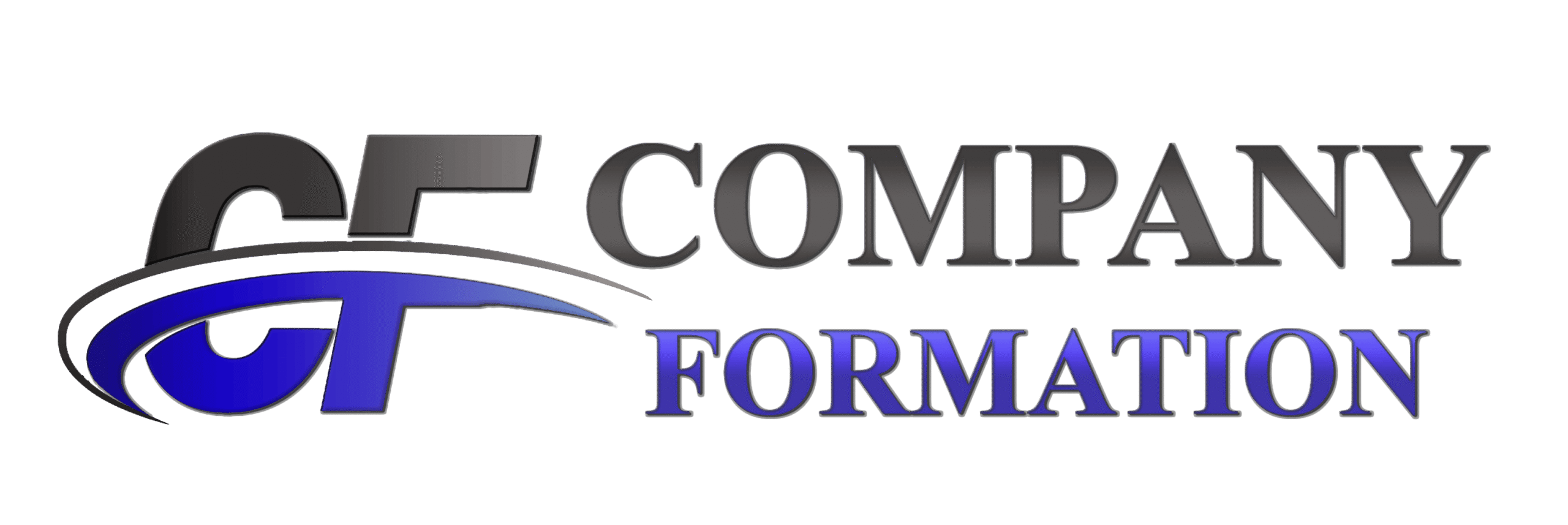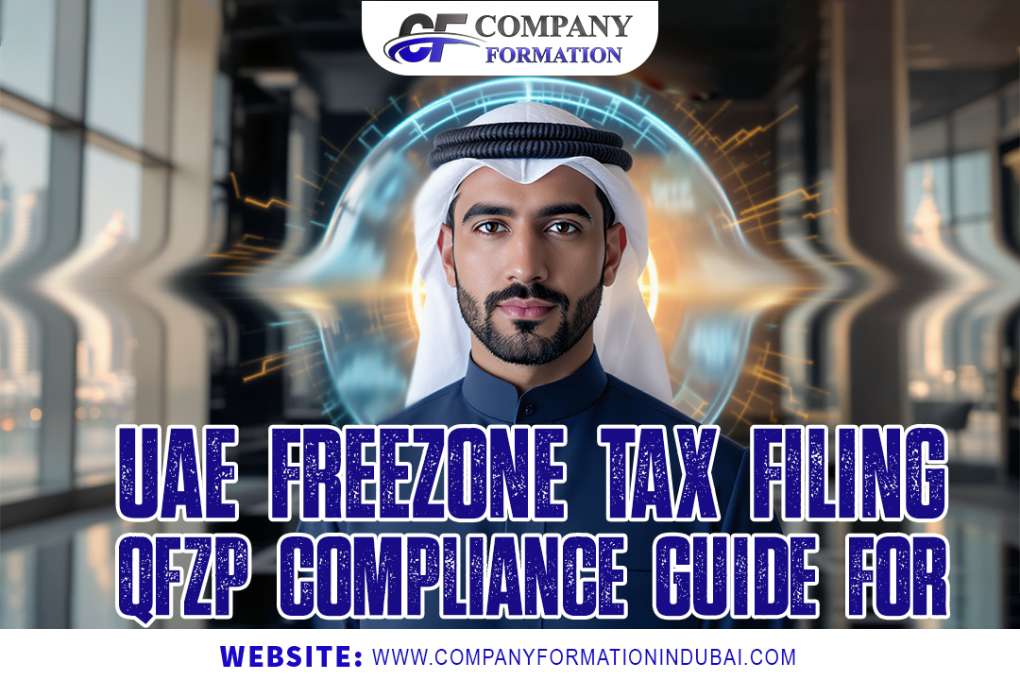How to File Corporate Tax for UAE Freezone Companies
Filing corporate tax for UAE Free Zone companies may look difficult, but it can be simple with the right steps. If your business is in a Free Zone like DMCC or JAFZA, you may still enjoy a 0% tax rate on certain income if you qualify as a Qualifying Free Zone Person (QFZP).
Since June 2023, the UAE Corporate Tax Law (Federal Decree-Law No. 47 of 2022) has made it important for all companies to follow tax rules. Doing so helps you avoid fines and get full benefits.
What is a Qualifying Free Zone Person in UAE?
A Qualifying Free Zone Person (QFZP) is a company set up in a Free Zone or Designated Zone that can get a 0% corporate tax rate on certain income. This rule comes from Federal Decree-Law No. 47 of 2022 and helps businesses in Free Zones like DMCC, JAFZA, or ADGM save on taxes. To qualify, companies must follow the Federal Tax Authority (FTA) rules.
Conditions to Be a QFZP
- Have a real setup in the Free Zone Your company must have an office and employees in the Free Zone doing the main business work.
- Earn qualifying income Only income from approved activities, like manufacturing or logistics, will qualify. (See Ministerial Decision No. 139 of 2023).
- Do not choose the standard tax rate You cannot switch to the 9% corporate tax rate used by other businesses.
- Follow fair pricing rules Deals with related companies must follow transfer pricing rules.
- Keep audited financial statements Accounts must follow International Financial Reporting Standards (IFRS).
- Limit non-qualifying income Income that does not qualify must stay under AED 5 million or 5% of your total revenue.
Understanding UAE Corporate Tax for Free Zone Companies
The UAE Corporate Tax Law, effective from June 2023, applies to all businesses, including those in Free Zones. While mainland businesses face a 9% tax rate on taxable income above AED 375,000, Free Zone companies can enjoy a 0% tax rate on qualifying income if they maintain QFZP status. Non-qualifying income, such as revenue from excluded activities, is taxed at 9%. This dual structure supports UAE’s economic diversification and aligns with OECD BEPS 2.0 standards.
Key Features of Free Zone Tax Regime
- Tax rates: 0% on qualifying income; 9% on non-qualifying income.
- Designated Zones: Specific Free Zones listed by the UAE Cabinet qualify for tax benefits.
- Compliance: Mandatory tax registration, audited financial statements, and transfer pricing documentation.
- Economic Substance Regulations (ESR): Overlap with corporate tax compliance to ensure substance in the Free Zone.
Yes, but QFZPs adhering to regulations enjoy tax exemptions, unlike mainland businesses. This section bridges to the filing process by explaining the tax framework.
Step-by-Step Guide to File Corporate Tax for Freezone Companies
Filing corporate tax for UAE Freezone companies is straightforward if you follow these steps. This guide ensures tax compliance and maximizes tax exemptions for Qualifying Free Zone Persons.
Step 1: Confirm Free Zone Status
- Check with your Free Zone Authority (e.g., DMCC, JAFZA) to verify if your business operates in a Designated Zone for corporate tax purposes.
- Ensure your company is a juridical person (e.g., LLC, not a sole proprietorship).
Step 2: Register with the Federal Tax Authority
- Create an account on the EmaraTax portal.
- Submit your tax registration application per FTA Decision No. 3 of 2024. Missing deadlines incurs administrative penalties.
Step 3: Maintain Audited Financial Statements
- Prepare IFRS-compliant financial statements, even if revenue is below AED 50 million.
- Document qualifying income and non-qualifying income separately for clarity.
Step 4: Segregate Income Types
- Identify qualifying income from qualifying activities (e.g., manufacturing, logistics).
- Track non-qualifying income (e.g., income from excluded activities or permanent establishments).
Step 5: Ensure Compliance with Transfer Pricing
- Maintain transfer pricing documentation for transactions with related parties.
- Apply the arm’s length principle to allocate profits between Free Zone and permanent establishments.
Step 6: File Your Tax Return
- Submit your corporate tax return within 9 months of the financial year-end via the EmaraTax portal.
- Pay any 9% tax on non-qualifying income (if applicable).
Step 7: Retain Records
- Keep all records, including audited financial statements and transfer pricing documentation, for 7 years per FTA requirements.
How to Calculate Corporate Tax for Freezone Companies
Calculating corporate tax for UAE Freezone companies involves separating qualifying income (taxed at 0%) from non-qualifying income (taxed at 9%). Here’s how to do it.
Two-Step Calculation Process
Segregate Revenue:
- Identify qualifying income from qualifying activities (e.g., trading in Designated Zones).
- Classify non-qualifying income from excluded activities or permanent establishments.
Allocate Expenses:
- Assign direct expenses to qualifying income or non-qualifying income.
- For indirect expenses, use a pro rata allocation based on revenue or arm’s length principles.
Example Calculation
Suppose your Free Zone company in DMCC has:
- Total revenue: AED 10 million
- Qualifying income: AED 9.6 million (from logistics services)
- Non-qualifying income: AED 400,000 (from leasing non-commercial property)
- De minimis threshold: 5% of AED 10M = AED 500,000
Since non-qualifying income (AED 400,000) is below the de minimis threshold (AED 500,000 or 5%), all income qualifies for the 0% tax rate. If it exceeds AED 5 million or 5%, the 9% tax rate applies to non-qualifying income.
Qualifying Activities and Income for 0% Tax Rate
Qualifying activities are specific business operations eligible for the 0% corporate tax rate, as defined by Ministerial Decision No. 139 of 2023. These activities drive qualifying income for Qualifying Free Zone Persons.
Key Qualifying Activities
- Manufacturing of goods or materials: Includes contract manufacturing and assembly.
- Processing of goods or materials: Covers fabrication, packaging, or chemical reactions.
- Trading of Qualifying Commodities: Involves raw commodities traded on recognized exchanges.
- Holding of shares and securities: Includes dividends and capital gains from investments held for 12+ months.
- Ownership, management, and operation of ships: Covers international transportation and offshore services.
- Logistics services: Includes warehousing, freight forwarding, and order fulfillment in Designated Zones.
- Reinsurance, fund management, and wealth management services: Must be under UAE regulatory oversight.
- Headquarter and financing services to related parties: Includes strategic management and cash pooling.
- Financing and leasing of aircraft: Covers leasing contracts and asset management.
Qualifying Income comes from:
- Transactions with other Free Zone Persons (if they are the beneficial recipient).
- Qualifying activities not classified as excluded activities.
- Income from Qualifying Intellectual Property (tracked via a nexus approach).
Non-Qualifying Income and De Minimis Rules
Non-qualifying income is taxed at 9% and includes revenue from excluded activities or permanent establishments. The de minimis rule ensures Qualifying Free Zone Persons maintain 0% tax rate if non-qualifying income stays below AED 5 million or 5% of total revenue.
Excluded Activities
- Transactions with natural persons (except for ships, fund management, or aircraft leasing).
- Banking and insurance activities (excluding reinsurance).
- Financing and leasing (except for ships, aircraft, or related parties).
- Ownership of immovable property (except commercial property in Free Zones with Free Zone Persons).
De Minimis Example
A JAFZA company earns AED 20 million, with AED 1 million from non-qualifying income (e.g., rental income from mainland property). Since AED 1 million is below 5% of AED 20 million (AED 1 million), the 0% tax rate applies. If it exceeds, the 9% tax rate applies to non-qualifying income.
Compliance Requirements for Free Zone Companies
Tax compliance is critical for Free Zone companies to maintain QFZP status and avoid penalties. Here are the key requirements.
Mandatory Compliance Steps
- Tax Registration: Register with the FTA via the EmaraTax portal.
- Audited Financial Statements: Maintain IFRS-compliant records, even for startups with no revenue.
- Transfer Pricing Documentation: Document transactions with related parties per arm’s length principle.
- Record Retention: Keep records for 7 years, including financial statements and audit documentation.
- Economic Substance: Demonstrate core income-generating activities in the Free Zone.
Avoiding Penalties and Maintaining QFZP Status
Non-compliance with UAE Corporate Tax Law can lead to administrative penalties and loss of QFZP status. Here’s how to stay compliant.
Common Penalties
- Late tax registration: Fines per FTA Decision No. 3 of 2024.
- Late tax return filing: Penalties for missing the 9-month deadline.
- Non-compliance with de minimis: Loss of 0% tax rate for 5 years if non-qualifying income exceeds thresholds.
Tips to Maintain QFZP Status
- Regularly review qualifying income and non-qualifying income segregation.
- Conduct internal audits to ensure IFRS compliance.
- Consult tax advisory services for transfer pricing and economic substance guidance.
- Use tools like corporate tax calculators to verify calculations.
Free Zone vs. Mainland Corporate Tax: Key Differences
Understanding the differences between Free Zone and mainland corporate tax helps optimize your tax strategy.
| Aspect | Free Zone | Mainland |
| Tax Rate | 0% on qualifying income; 9% on non-qualifying income | 0% up to AED 375,000; 9% above |
| Eligibility | Qualifying Free Zone Person status required | All businesses with taxable income |
| Compliance | Audited financial statements, transfer pricing | Standard FTA compliance |
| Exemptions | Qualifying income, double taxation treaties | Limited exemptions |
FAQs on UAE Freezone Corporate Tax
Q1: When does the UAE corporate tax take effect?
It applies to financial years starting on or after June 1, 2023, per Federal Decree-Law No. 47 of 2022.
Q2: Who needs to register for UAE corporate tax?
All Free Zone Persons, including QFZPs, must register with the FTA, except non-resident juridical persons with no permanent establishment.
Q3: How can a DMCC company determine its applicable tax rate?
Segregate qualifying income (0%) from non-qualifying income (9%) and ensure de minimis compliance.
Q5: What are the latest 2025 Free Zone designations?
Check with your Free Zone Authority or FTA for updated Designated Zone lists, as Cabinet Decisions may evolve.
Conclusion: Streamline Your Freezone Tax Filing
Filing corporate tax for UAE Free Zone companies can be simple if you follow the right steps. If your company keeps its Qualifying Free Zone Person status, separates qualifying income, and follows FTA rules, you can still enjoy a 0% tax rate and avoid fines.
Use easy tools like the EmaraTax portal and online tax calculators to help with filing. Always check the latest FTA circulars (2025) for updates. If things seem too tricky, you can get help from a tax advisor.





